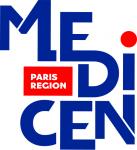PhD Candidates in Immunology/Immunometabolism
| ABG-133868 | Sujet de Thèse | |
| 16/10/2025 | Financement public/privé |
- Biologie
Description du sujet
The immune system depends on tightly regulated metabolic programs to maintain the balance between activation and tolerance. In cancer and chronic inflammation, immune cells often face metabolic restrictions, while in the gut, microbial metabolites influence immune regulation and tolerance.
In this context, the FNRS and FNR funded projects will explore how metabolic pathways control T cell function and differentiation. Through a fully automated high-throughput screening platform, we have identified novel metabolic targets that appear critical for anti-tumor immunity. One PhD project will dissect how these targets modulate T cell activation, mitochondrial function, and metabolic fitness, using a combination of in vitro and in vivo approaches.
A second project will focus on microbial metabolites that shape regulatory T cell (Treg) function and immune homeostasis, with the opportunity to participate in the screening process itself, aiming to identify bioactive microbial metabolites and link them to their microbial origins and immune functions.
Both PhD projects integrate metabolic, immunological, and translational approaches to discover new immunometabolic mechanisms that can be harnessed to improve immune therapies in cancer and inflammatory diseases.
Nature du financement
Précisions sur le financement
Présentation établissement et labo d'accueil
Project
The immune system depends on tightly regulated metabolic programs to maintain the balance between activation and tolerance. In cancer and chronic inflammation, immune cells often face metabolic restrictions, while in the gut, microbial metabolites influence immune regulation and tolerance.
In this context, the FNRS and FNR funded projects will explore how metabolic pathways control T cell function and differentiation. Through a fully automated high-throughput screening platform, we have identified novel metabolic targets that appear critical for anti-tumor immunity. One PhD project will dissect how these targets modulate T cell activation, mitochondrial function, and metabolic fitness, using a combination of in vitro and in vivo approaches.
A second project will focus on microbial metabolites that shape regulatory T cell (Treg) function and immune homeostasis, with the opportunity to participate in the screening process itself, aiming to identify bioactive microbial metabolites and link them to their microbial origins and immune functions.
Both PhD projects integrate metabolic, immunological, and translational approaches to discover new immunometabolic mechanisms that can be harnessed to improve immune therapies in cancer and inflammatory diseases.
Key Skills, Demonstrated Experience and Qualifications
● Master’s degree (MSc) in Immunology, Molecular Biology, or Biomedical Sciences;
● Solid background in immunology, cellular and molecular biology;
● Experience with cell culture, flow cytometry, molecular cloning, or CRISPR/Cas9 techniques;
● High motivation to work on immune metabolism, T cell biology, and translational immunology;
● Curiosity-driven and open-minded personality, with the ability to work in a collaborative, international environment;
● Good communication and organizational skills in English (working language).
For any further information please visit
Prof. Dr. Dirk Brenner: https://orcid.org/0000-0001-8979-1045
Applications including a cover letter and a curriculum vitae should be sent before 31 Jan 2026 via our website www.LIH.lu/jobs with the ref: MC/PhD1025/DB/ALL4
Please note that the successful candidate will be required to provide a language proficiency certificate in the language in which they intend to write their thesis, demonstrating a minimum level of B2.
Gender Equality
The LIH is an equal opportunities employer. We are fully committed to removing any discriminatory barrier related to gender, and not only, in recruitment and career progression of our staff. The LIH is attentive to gender representation among its leadership staff and aims to eliminate obstacles to the recruitment and promotion of female leaders and their career development.
Profil du candidat
● Master’s degree (MSc) in Immunology, Molecular Biology, or Biomedical Sciences;
● Solid background in immunology, cellular and molecular biology;
● Experience with cell culture, flow cytometry, molecular cloning, or CRISPR/Cas9 techniques;
● High motivation to work on immune metabolism, T cell biology, and translational immunology;
● Curiosity-driven and open-minded personality, with the ability to work in a collaborative, international environment;
● Good communication and organizational skills in English (working language).
Vous avez déjà un compte ?
Nouvel utilisateur ?
Vous souhaitez recevoir nos infolettres ?
Découvrez nos adhérents
 ADEME
ADEME  Aérocentre, Pôle d'excellence régional
Aérocentre, Pôle d'excellence régional  ANRT
ANRT  Ifremer
Ifremer  Medicen Paris Region
Medicen Paris Region  Nantes Université
Nantes Université  SUEZ
SUEZ  ASNR - Autorité de sûreté nucléaire et de radioprotection - Siège
ASNR - Autorité de sûreté nucléaire et de radioprotection - Siège  ONERA - The French Aerospace Lab
ONERA - The French Aerospace Lab  Institut Sup'biotech de Paris
Institut Sup'biotech de Paris  Généthon
Généthon  Tecknowmetrix
Tecknowmetrix  Nokia Bell Labs France
Nokia Bell Labs France  TotalEnergies
TotalEnergies  Servier
Servier  Groupe AFNOR - Association française de normalisation
Groupe AFNOR - Association française de normalisation  Laboratoire National de Métrologie et d'Essais - LNE
Laboratoire National de Métrologie et d'Essais - LNE
